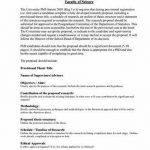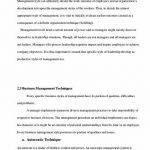Qualitative Research
A qualitative approach is appropriate when a complex, detailed understanding of an issue is required and when quantitative measures and statistical analyses do not fit the problem.
“Qualitative research begins with assumptions, a worldview, the possible use of a theoretical lens, and the study of research problems inquiring into the meaning individuals or groups ascribe to a social or human problem. To study this problem, qualitative researchers use an emerging qualitative approach to inquiry, the collection of data in a natural setting sensitive the people and places under study, and data analysis that is inductive and establishes patterns or themes. The final written report or presentation includes the voices of participants, the reflexivity of the researcher, and the complex description and interpretation of the problem and it extends the literature or signals a call for action.” Creswell, J. W. (2007). Qualitative inquiry and research design: Choosing among five traditions (2nd Ed). Thousand Oaks, CA: Sage, page 37.
When designing your research you might want to begin by choosing a philosophical, paradigmatic and interpretive framework and then go on to choose a qualitative approach to your inquiry.
- Narrative research focuses on studying one or two individuals, gathering data by collecting their stories, reporting individual experiences, and chronologically ordering the meaning of those experiences (a life history, for example).
- Phenomenological research focuses on the meaning of an experience for a number of individuals, i.e. what all participants have in common as they experience a certain phenomenon. Using in-depth interviews, it develops descriptions (not explanations or analyses) of the essences and underlying structures of these experiences.
- Grounded theory research moves beyond description to generate or discover a theory. The researcher generates a general explanation of a process, action or interaction shaped by the views of a large number of participants (=grounded in data from the field).
- Ethnographic research uses a qualitative design in which the researcher describes and interprets the shared and learned patterns of values, behaviors, beliefs, and issues such as power, resistance and dominance of a culture-sharing group.
- Case-study research involves the study of an issue explored in one or more cases, bound by time and place, by detailed, in-depth data collection involving multiple sources of information (observations, interviews, documents, audiovisual material). The case is selected to illustrate the issue.
On our Bookshelf you will find a number of books dealing with qualitative research. You can consult the books in the Master Thesis Lab.
If you need advice, there are staff members specialized in qualitative research at the Master Thesis Lab who can help you with your project. Ask the SAM present in the Master Thesis Lab to make an appointment for you.
It can also be useful to see how other students have tackled qualitative data collection and analysis. In the Master Thesis Lab there are examples of theses based on qualitative research.
Last Modified: 26-08-2015






 In country bobbie ann mason thesis writing
In country bobbie ann mason thesis writing Dahilan ng maagang pagbubuntis thesis writing
Dahilan ng maagang pagbubuntis thesis writing Ugc guidelines for phd thesis proposal
Ugc guidelines for phd thesis proposal Sample on thesis proposal+project management style
Sample on thesis proposal+project management style Writing your phd thesis topics
Writing your phd thesis topics






